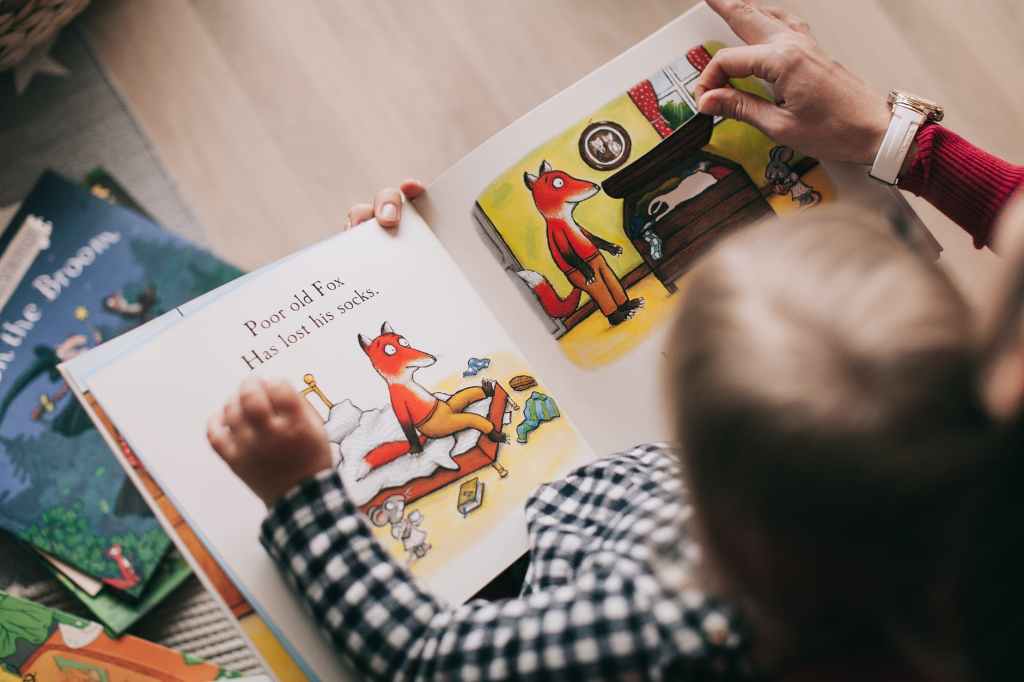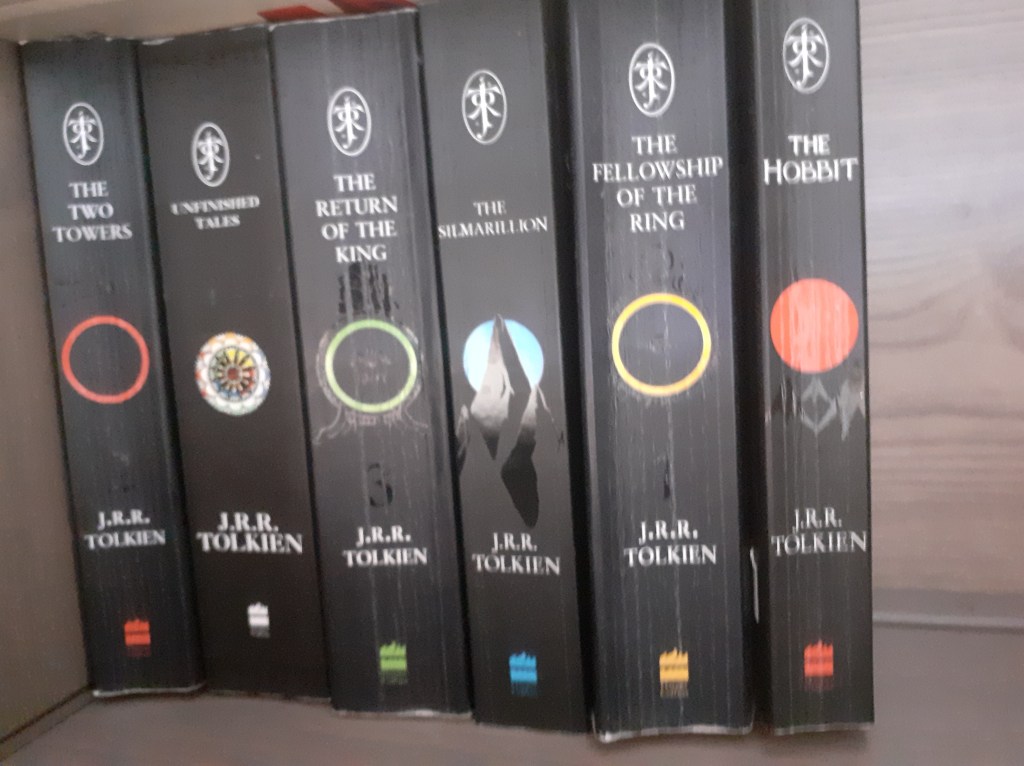
When I was twelve I was halfway through my first novel. It was a story about witches and the struggles of secondary school (my biggest concern back then).
It didn’t take me long to realise that it wasn’t any good. I came up with some sort of ritual and ceremoniously drowned these pages in the Semois (a river located in the Belgian Ardennes). It was my first novel. It’s also the only story that I have written in my mother tongue, Flemish.
In this blog post I want to tell you something more about my experiences with literature, about why I choose to write in English and the struggles that arise when you decide to write in an acquired language.
My experiences with literature as a child and why I stopped reading

As a young child I adored books. What’s not to like? There are talking foxes, balloons, cute monsters and lots of pictures. As I got older I remember reading Roald Dahl and C.S. Lewis (all of them in translation of course), but I was infatuated by the worlds which they have created.
When I became fourteen reading books at school became an obligation and something changed.
In Dutch class every pupil has to read a book. Sounds great, doesn’t it? Not really. Translated works are frowned upon in my country. We were all forced to read Flanders best-known writer. In his novels you’ll find many swear words and insults. They’re nothing like the brilliant ones which Shakespeare invented, but they’re the kind that you can hear on every street corner. They’re also just there for the sake of it. The characters are nearly always male and one-dimensional. It would be fruitless to look for any meaning or depth in these texts. But these were the kind of books that we were force fed at school. It didn’t take me long before I decided that adult books just weren’t my thing and I stopped reading.
My journey

It took some years before I started reading books again and it all began after I had first watched The Lord of the Rings. I picked up a copy in a bookshop and started reading.
I was appalled. I didn’t understand how one of the greatest fantasy classics could be so baldy written. I returned to the bookshop and found a copy in English. It became clear that Tolkien wasn’t a bad writer at all, it was just a bad translation.
I have never read another book in my mother tongue since that day but I did plunder that bookshop looking for English novels. Starting with Tolkien, George R.R. Martin, Hilary Mantel and Ken Folett until it was time to binge read the classics. The Brontë sisters, George Orwell, Shakespeare, Charles Dickens, Oscar Wilde, George Eliot and many more. I don’t think I did much else besides reading during that year.
Not long after I discovered The Open University. The decision to study English Literature with them was an easy one to make. During this time I very much enjoyed writing essays in English but I didn’t feel confident enough to write stories in English.
Writing in English

It took me three more years to write regularly again. This time in English. Of course I still have a lot of doubts. The red lines in Word might have solved the spelling problem, but I’m terrified of making grammatical mistakes which is why I have spent a lot of time studying grammar.
Then, there’s the fear of prejudice. A fear which is very real. If you’re looking for paid writing work on websites like Fiverr or Upwork you’ll often see: ‘native speakers only.’
It sometimes makes me wonder: will anyone even want to read my work once they know that I’m not a native speaker?For that same reason I never thought that any of my stories or poems would be published. I always assumed that I didn’t stand a chance. Having my stories and poems accepted by literary magazines has been unreal and a dream come true.
Exophonic writers
I’m not going to compare myself with the great names that follow. But I know that there are others out there who write in an acquired language or multiple languages and I want to emphasise that it’s possible to produce good writing in another language (and I also love a bit of literary history).
Samuel Beckett wrote in English and French. Joseph Conrad couldn’t speak English fluently until he was in his twenties but yet he went on to write novels like Heart of Darkness and The Secret Agent. Novels that are now regarded as the finest in English Literature.

And then there’s my great hero: Voltaire. He was a great admirer of the 18th century British government and of the literature that was being produced there. Voltaire was determined to learn to write, read and speak English.
The list of exophonic writers is actually quite long. We can add Vladimir Nabokov who had written nine novels in Russian before he began writing English prose. Then there’s Kahlil Gibran and many more.
I decided to write in English because the words flow while in my native tongue they don’t want to come. I can express myself better and words have more feeling, more meaning.
I also decided to write in English because it’s the language that made me love literature again.

I hope you enjoyed reading this post and would love to hear your thoughts in the comments below. Don’t hesitate to call me out if I have made any mistakes.

BUY ME A COFFEE
Buy me a coffee so that I can keep writing stories inspired by the wonderful dark world that is Flemish folklore. Anything you can do to help support me is appreciated so much and really makes a difference.
€3.00

This is very inspiring. I am not a native speaker myself but I love English as much as my native language. Such a beautiful language!!!
LikeLiked by 1 person
It’s a wonderful language! Thank you for reading!
LikeLike
You write beautifully 🙂
There’s not even the slightest hint that English isn’t your native language.
LikeLiked by 1 person
Thank you so much! That’s very kind!
LikeLike
Sometimes love is far way from home. For me, writing in English was the only option, and I love it.
LikeLiked by 1 person
Love it too! Thanks for reading!
LikeLike
What a wonderful piece. Well played, man. To me it sounds like English truly is your native tongue. I think, from what I’ve seen, you write beautifully!
LikeLiked by 1 person
Thank you so much Chris! That’s very kind!
LikeLike
English is not my first language either. 😋
LikeLiked by 1 person
I have the same experience with my native language German. I write poems in German but everything else in English.
One thing I realized is that people won’t even notice that you are not a native speaker. There are so many people in every language who don’t write well in their native ones.
The biggest obstacle is our own doubt. We try to warn others ahead or apologize but only then people notice we are not a native speaker. If we simply let our writing to speak for itself nobody will notice anything.
LikeLiked by 1 person
This is so true! I don’t write well in my native language. I’m guilty of warning people ahead as well. It’s something that I really must stop doing.
LikeLike